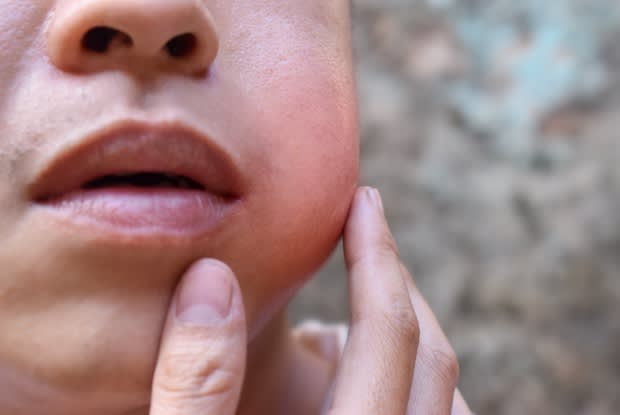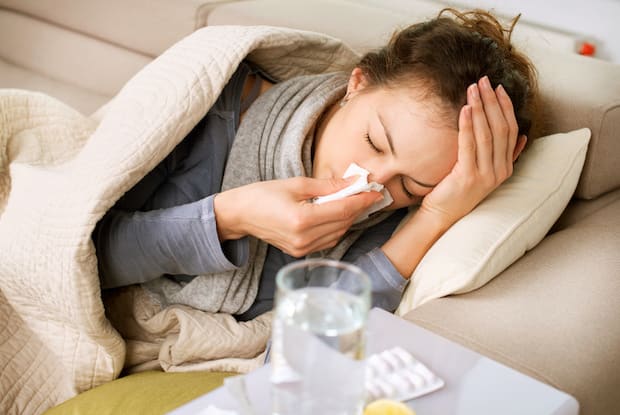Table of Contents
III. Is mumps a serious disease?
VII. I’ve caught the mumps! What should I do now?
The prevalence of mumps
The impact of mumps cannot be understated. For example, according to Time magazine, around 74 people are believed to have contracted the disease at Temple University in Philadelphia. Elsewhere, more than 2000 people have been quarantined in immigration centers in Pine Prairie, Louisiana, Aurora, and Colorado. [1]
With current mumps outbreaks like these happening across the country, you probably have a few questions about this contagious disease. Medications like ibuprofen and aspirin can help with mild symptoms, but there is much more to learn about mumps. So read on to learn everything you ever wanted to know about mumps.
What is mumps?
Mumps is an infectious, contagious disease caused by a virus, which can spread from saliva or mucus excretions. [2]
Symptoms of mumps are similar to the flu: fever, muscle aches, fatigue, headache, and loss of appetite. But unlike the flu, mumps is most known for the swelling it causes. Typically, patients will have a very swollen jaw due to swollen salivary glands. [3]
Unfortunately, there is no cure for mumps. Antibiotics will not work on the disease because it’s a virus, not bacteria. But luckily, most people can recover from mumps on their own in a few weeks.

Is mumps a serious disease?
While mumps is usually a relatively mild disease in children, adults can experience more complications [2]:
- Before widespread vaccination, mumps was blamed for 10% of viral meningitis cases in the United States. Meningitis is a disease of the membranes that cover the spinal cord and brain, and some strains can be fatal. [4]
- About 10% of infected males will develop inflamed, painful testicles. Half of these victims will suffer some form of testicular atrophy. Sterility is rare, but does occur.
- In females, ovaries and breasts can become inflamed.
- About one in 20,000 people with mumps will develop deafness.
- Some women have even had miscarriages after developing mumps.
The chances of mumps being serious for me are quite slim. Can’t I just risk having it and not get the vaccine?
Perhaps you don’t like getting jabbed by a needle. You may be tempted to just ride the disease out if you get it. After all, mumps doesn’t sound that bad.
However, vaccinations not only protect individuals, but they also protect communities. Some people, such as immunocompromised individuals, HIV/AIDS patients, newborns, and the elderly are not able to take the vaccine. [5] These individuals are also more likely to experience serious complications if they do catch the disease. So herd immunity is essential for everyone’s safety, and everyone should do their part by getting vaccinated if they can [6].
If you have concerns about vaccine safety, the College of Physicians of Philadelphia has thorough answers to common questions here.
Why is mumps coming back?
Mumps can be spread by people who have recently returned from a trip abroad. Other areas of the world have less developed health-care systems, and there may be mumps outbreaks happening in these places. Even Western Europe had a recent outbreak where a student was suspected to have brought the disease back to their university campus in California. [7]
How is mumps spread?
Mumps can spread easily between people who are in close contact with each other. The virus is spread through respiratory fluids that come from coughing, sneezing, sharing eating or drinking utensils, kissing, and touching infected surfaces.
The CDC recommends infected persons avoid contact with others a few days before and up to five days after their salivary glands start swelling. [8]

I’ve caught the mumps! What should I do now?
Usually, mumps goes away on its own. Treatment is focused on symptom relief:
- Get plenty of bed rest.
- Drink lots of fluids.
- Avoid eating foods that require excessive chewing [9]
- Avoid acidic drinks like fruit juice, which may irritate your parotid glands [10]
- Use an ice pack or warm compress on sore glands.
- Find ibuprofen ($0.08 a pill) online at True Canada Pharmacy to treat pain.
Please note that children under age 16 should not use aspirin.
Call your doctor’s clinic before an appointment if you suspect you have mumps. The clinic may give you important instructions on how to avoid infecting others. But know that you typically don’t need to contact your doctor unless your symptoms have not improved in seven days or if they suddenly get worse.
With large lumps underneath your jaw and flu-like symptoms, mumps is no fun, but if you stay well-rested and hydrated, and if you are generally healthy, you should be over the disease soon. In the meantime, take a nap, watch some Netflix, and remind your friends and family to get vaccinated!
DISCLAIMER: The content in this article is intended for informational purposes only. This website does not provide medical advice. In all circumstances, you should always seek the advice of your physician and/or other qualified health professionals(s) for drug, medical condition, or treatment advice. The content provided on this website is not a substitute for professional medical advice, diagnosis or treatment.
